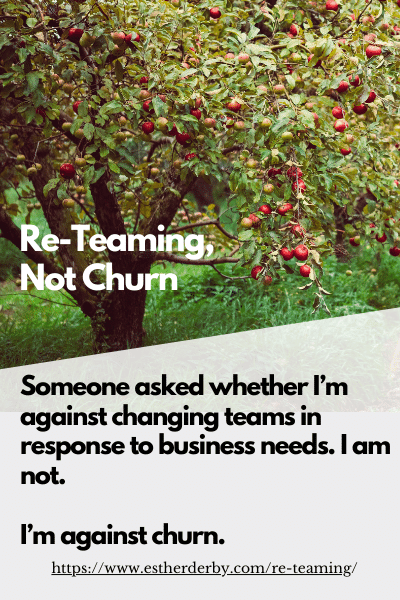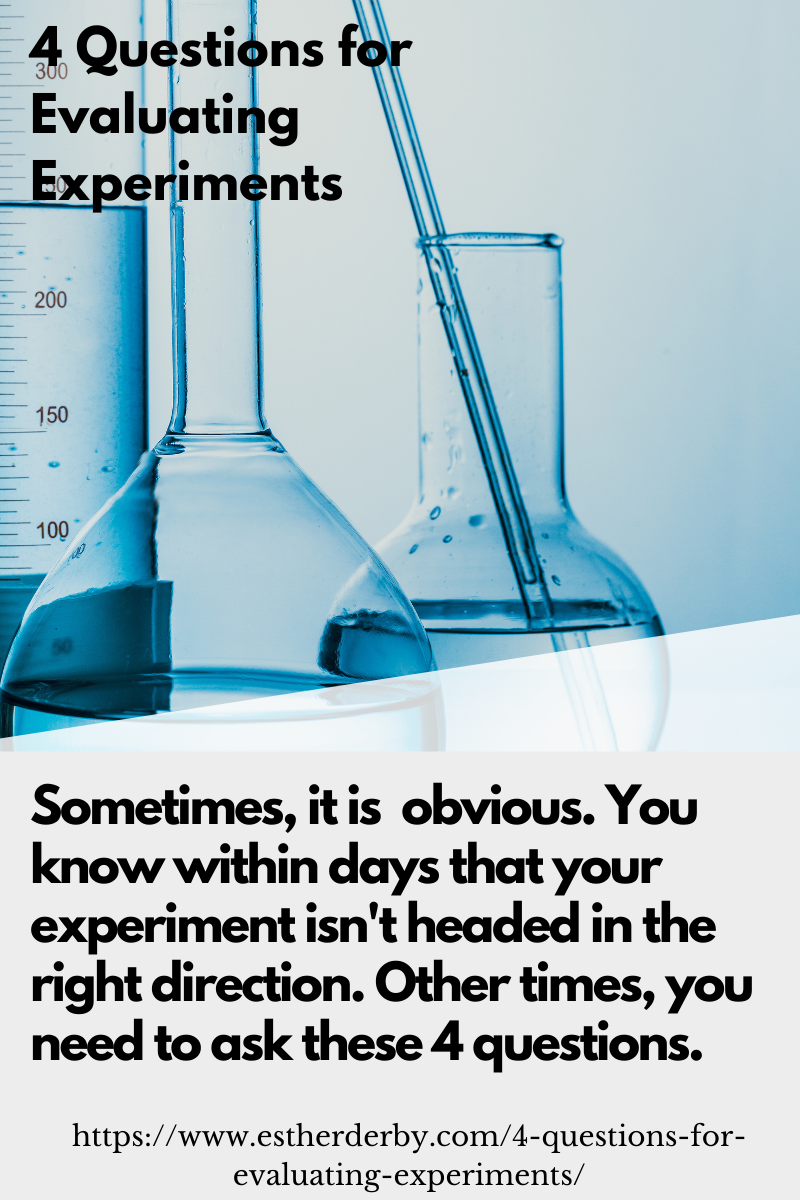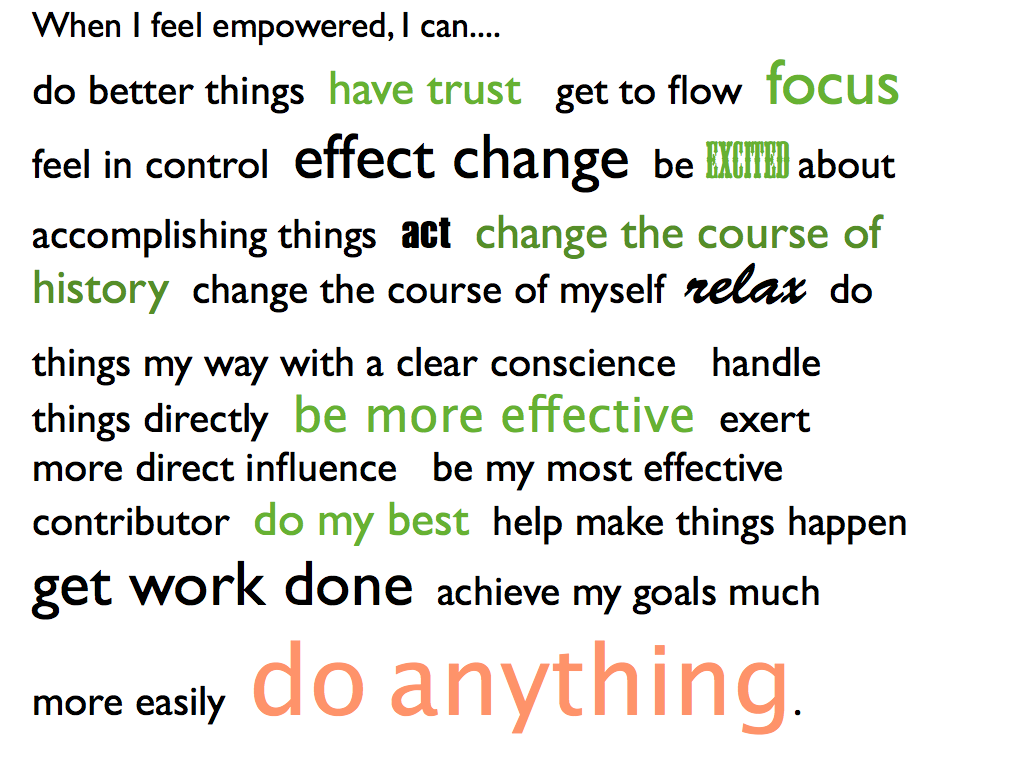Trust is a foundation for effective team work (and effective organizations). Some managers attempt building trust with ropes courses, sailing, or cooking events. Such activities like these may fun (for some). Indeed, people may develop a level of camaraderie through such activities. However, these activities have little to do with the trust that’s needed on a team. In fact, it may not translate back to work at all. What’s needed is professional trust.
Adult trust is contextual–not binary, like an on off switch. Adults make nuanced judgements about how far to extend trust, and in what areas of life. For example, I trust my husband with my life on wilderness trips. But, I don’t trust him with my laundry. Both judgements are based on direct experience of his skills. The fact that I don’t trust him with my laundry doesn’t imply anything about how I judge his character or worth as a person.

Professional Trust
Teams don’t require the sort of trust that people (often) have with close family members, best friends, and clergy. What’s needed is professional trust–that exists within the work context and relates to competence, commitment, and communication.
Competence
Team members need to have confidence that their coworkers are competent related to the content of their work.
Commitment
They need to believe their coworker’s intentions towards other team members and commitment to the team (and their work) as a whole.
Communication
People need to know that team members won’t withhold important information–whether that information relates to the task or to relationships . They need to know that when something comes up the other team member will communicate directly with the person concerned, rather than taking it to the manager or talking to everyone else about it. This applies to both commitments and interpersonal interactions.
Each individual enters a team with a certain capacity to extend trust based on their outlook on life and past experience. That level is different for every person. From that baseline, each interaction builds or erodes trust from that set point.
What contributes building such confidence?
- Routines that maintain working relationships
- Direct, congruent feedback
- Sharing information
- Making realistic commitments
- Communicating problems early
- Asking for help and reciprocating
- Engaging in productive conflict
Trust is not mystical and it doesn’t come from a ropes course or other team building activity. It comes from working together, working through the inevitable frictions, follow-through, and follow-up.
Updated October 2020.








Hey Esther,
I think you might misunderstand the role that outdoor initiative games play in trust building. I’ve been running teens through high-ropes courses for over 10 years now and have seen group after group of kids, kids of different ethnic backgrounds, that wouldn’t even talk to each other at school, come out of a two day session able to relate to each other and work together.
Like any facilitated exercise, the purpose of these events is to create a shared experience, and ah-ha moment, and then pull it back into the context of what we do on a day to day basis. While I agree with your fundamental premise on trust, I think you may have unfairly diminished the potential value these kinds of events can add.
Again, think of these events just like any of the learning games you might use to help people understand how to build better software.
Hi, Mike –
Ropes courses can provide groups a way to get to know each other in a non-work setting. Social relationship are important for trust. When you see someone else as similar, or feel friendship you are more likely to cut them some slack or make a more generous interpretation when something goes awry.
My point is that the sort of trust that is often emphasized in these courses (though obviously not the way you run them) doesn’t translate to the trust issues that are prevalent in goal oriented teams–competence, commitment, communication.
e
Thanks for sharing something really worth taking a note. For an effective team Trust is a foundation but the sad part is that trust issues are everywhere, and a major challenge in a distributed setup.
Along with what you said, I observed that when going gets tough, like, tight deadlines, resource crunch, etc, trust level goes up.
Thanks
Prateek
Hi, Prateek –
I have seen teams pull together and develop trust in the face of deadlines. And I’ve seen teams completely break down under nearly identical external pressures. Not so simple, I think.
e
Indeed! Trust is often what is lacking in the organisation when faced with any type of change, especially when trying to build a working team and especially if that team is supposed to be using agile values.
With trust comes the “leap of faith” that I often find lacking. There needs to be trust for courage to exists. Courage to try something new, to try that scary new path which may (or may not!) lead to better performance. I wrote a bit about it: http://blog.workingsoftware.se/2010/11/importance-of-trust.html And I think that is the first step towards something new and great!